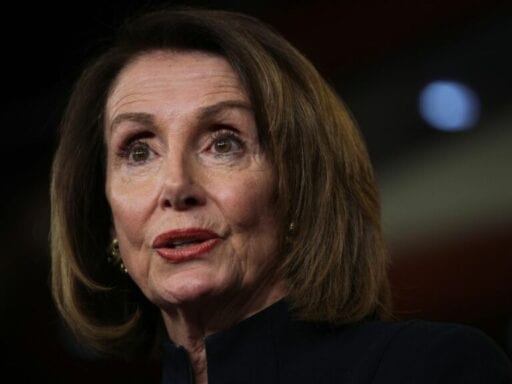Democrats hammer the need for transparency in disclosure of the Mueller report.
House Speaker Nancy Pelosi says she wants as much transparency as possible when it comes to disclosures of Special Counsel Robert Mueller’s report on Russian interference in the 2016 election.
Pelosi on Saturday told members of the Democratic caucus that she would reject holding classified briefings of the report. This would include briefings with the “Gang of Eight” — eight Democratic and Republican lawmakers in the House and Senate who receive highly classified material — and any other such meetings that are proposed. Pelosi argued that briefings should be declassified so lawmakers are able to talk about the findings in public.
Attorney General Bill Barr received a copy of Mueller’s final report on Friday afternoon and said he might be able to share “principal conclusions” with Congress as soon as this weekend. That disclosure isn’t expected to happen until Sunday at the earliest, according to the Washington Post’s Matt Zapotosky and Devlin Barrett.
Democratic leaders are pushing Barr to publish as much of the report as possible, in order to better understand the “underlying evidence” Mueller relied on and how he reached his conclusions. They also want to ensure that the Trump administration doesn’t suppress parts of the report that may be damaging to the president.
“The Americans deserve the truth, to know the truth,” Pelosi said during the call with her Democratic colleagues, according to a person who was on it. “Transparency is the order of the day.”
Pelosi and Senate Minority Leader Chuck Schumer expressed similar sentiments in a statement they released on Friday calling for the public release of the report. “The White House must not be allowed to interfere in decisions about what parts of those findings or evidence are made public,” they said.
Republicans have also urged Barr to make the report public, including a number of House Republicans who voted in favor of a resolution pressing Barr on the matter. Some have argued that complete transparency would help to clear any lingering concerns about whether the Trump campaign colluded with Russia.
For now, it’s still unclear how much of the report Barr intends to share, and it’s looking like lawmakers won’t have an answer until Sunday at the earliest.
There’s precedent to make a report like this public
As Vox’s Jen Kirby writes, there’s a whole slew of reasons why parts of the report might be redacted and hidden from public view:
There are other legitimate legal reasons that might prevent Barr from disclosing information. Mueller might rely on grand jury evidence and testimony, and there are rules against making this information public outside the DOJ if the case isn’t being prosecuted.
The report might also contain classified information or sources, likely related to national security, which can’t be disclosed because it involves sensitive matters or reveals sources or methods of intelligence-gathering.
Under the special counsel regulations, however, Barr can disclose as much of the report as he sees fit given “applicable legal restrictions” if he determines that it is in the “public interest” to do so. And taking action like this isn’t without precedent, Sen. Chris Coons (D-DE) told reporters on a conference call on Saturday.
During a 1999 special counsel investigation into an FBI standoff that took place in Waco, Texas, prosecutors published their findings online, CNN reports.
Democrats are expected to emphasize such precedents as they continue to hammer the need for transparency.
Author: Li Zhou
Read More



